‘Violent chaos’: Fears grow for US election as disinformation spreads online
All eyes are on social media as the US election looms, with experts warning the country could soon descend into devastating violence.
Fake accounts. AI-manipulated footage. Foreign algorithm-bending bots. And a proprietor who openly endorses the most extreme of conspiracy theories.
All eyes are on social media platform X as fears grow next week’s US Presidential election could degenerate into violent chaos.
Especially because anyone who wants to can cash in on it.
A BBC investigation has found many X (formerly Twitter) users who share and generate election misinformation are being paid thousands of dollars in revenue by the controversial billionaire Elon Musk’s company.
And a Wall Street Journal study has revealed even brand new accounts with no declared political interests or leanings are being flooded by aggressively pro-Trump posts.
“If that cringe, dingbat, zero-votes, airhead Kamala Harris is able to cheat enough to win the presidency the USA is over,” an anonymous user named “catturd2” pronounced. This somehow managed to appear in almost all 14 of the Journal’s freshly created accounts.
The revelations come as political analysts voice their concerns that new, sophisticated manipulation tactics are at play on social media for the 2024 election campaign.
And it’s all about generating doubt.
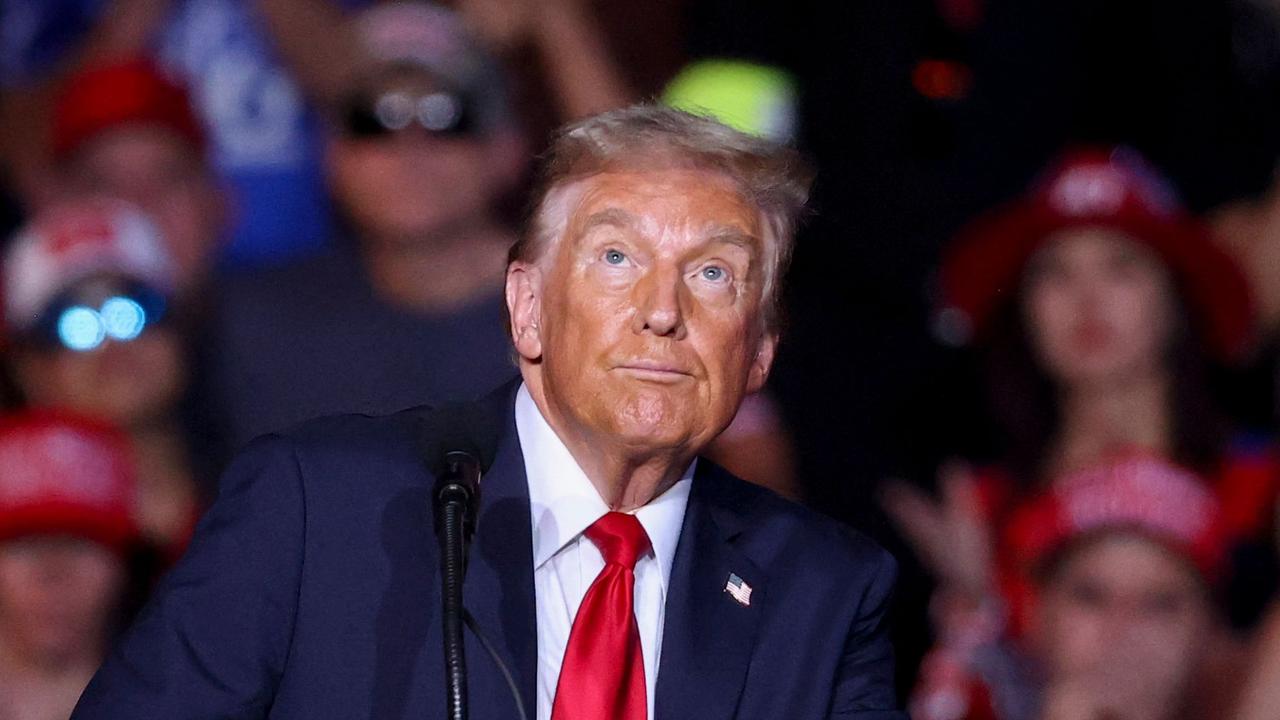
Generative AI chatbots, generative AI images and generative AI footage.
And social media algorithms are still as unusually eager to promote hostile, contentious and fake content to unwilling users as they were during the contentious 2019 election campaign.
“Every day brings new examples of fake campaign-related pictures, videos, and narratives,” warns Brookings Institution analyst Darrell West.
“So, we shouldn’t be surprised on election night if we see false narratives seeking to affect people’s belief about election integrity and the true winner of the race.”

Alternate truths
“In recent weeks, there have been false images of Kamala Harris in a swimming suit hugging convicted sex offender Jeffrey Epstein, an AI-generated video of a young man saying he was sexually abused by Tim Walz 30 years ago, a fraudulent Fordham transcript for Donald Trump claiming he had a barely passing 1.28 grade point average,” West reported.
Then there are the conspiracy theories accusing Trump of staging his assassination attempts for sympathy and pronouncements that US hurricane disaster relief funding had been diverted to illegal immigrants.
None of the above was true.
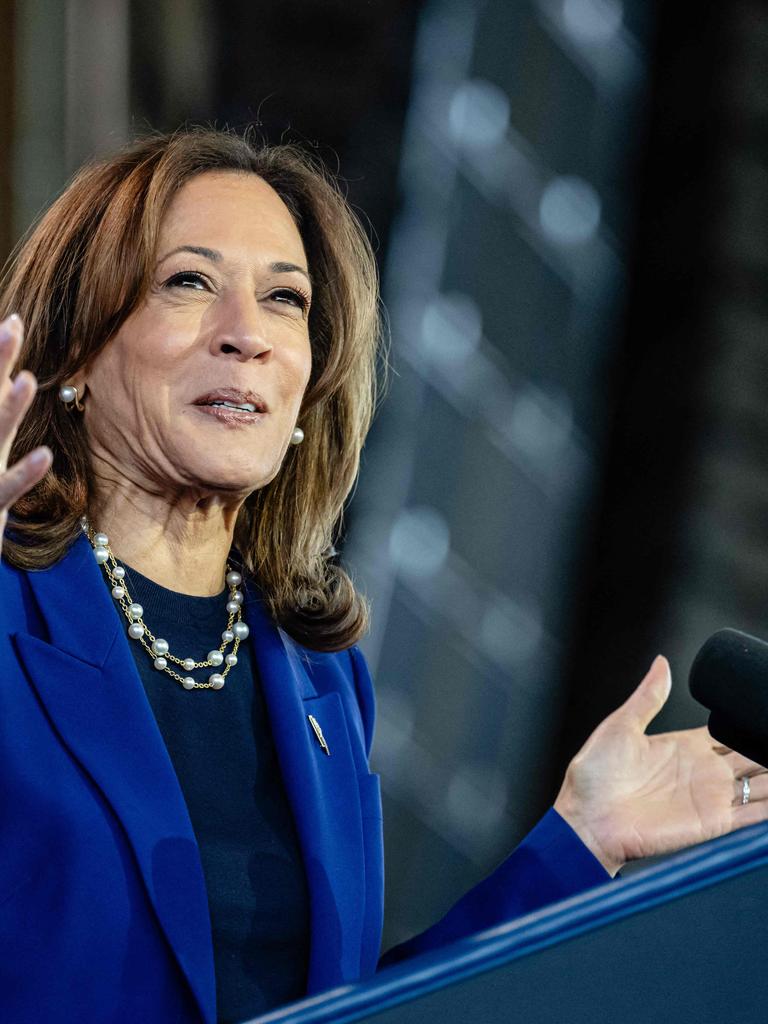
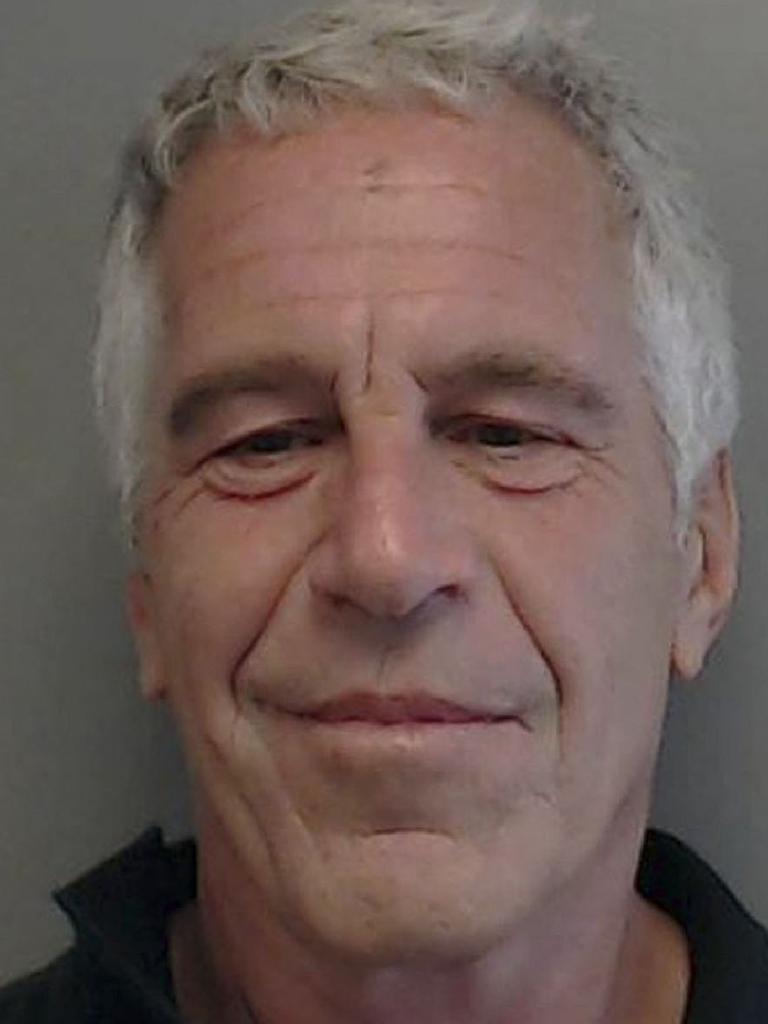
But that didn’t stop the claims from spreading like wildfire across social media platforms.
However, the Wall Street Journal study has found that, in the final sprint towards the November 5 polls, its posts paved the way for accusations of a rigged election result that have floated to the top.
“They are getting ready to CHEAT!” Republican presidential candidate Donald Trump blared in a September 23 post on his Truth Social account – a company he owns.
Similarly, false claims boosted by Musk’s personal account on his X platform are gaining maximum exposure. But he’s also personally contributing to the fire hose of falsehoods: “Michigan has more registered voters than eligible citizens!? Is that true?” he posted while boosting an anonymous (but revenue-earning) political account.
Michigan has more registered voters than eligible citizens!? Is that true @CommunityNotes? https://t.co/f7Q2iCZdQ7
— Elon Musk (@elonmusk) October 19, 2024
It is. But not in the election-rigging manner Musk infers. The state is not allowed to remove inactive voters (through death, disability or migration) until after each election cycle.
Musk went on to declare “this is crazy” in response to another anonymous – and demonstrably incorrect – allegation that not-for-profit organisations were “harvesting” hundreds of thousands of post-in ballots from among the homeless.
His company’s algorithms boosted both false claims to generate tens of millions of views.
The Institute for Strategic Dialogue (ISD) believes similar posts – many of which share fake images of 2024 voting ballots alongside passports of foreign countries (including the defunct Nazi Germany and Soviet Union) – are being boosted across X in the lead up to the election.
“The claims appear to be part of an effort to mislead voters by playing on recent fearmongering about noncitizens casting ballots in the presidential election,” it reported.
“These accounts appear co-ordinated, with the largest account referring to the network as ‘my group’ and many of the accounts posting identical language and images.”

Priming chaos
“In contested elections, candidates sometimes have political incentives to claim victory before there is independent and objective evidence of winning,” warned the Brookings Institution’s West.
“There should be no victory speeches taken seriously by anyone until there is actual evidence of triumph because that simply would be an effort to claim the moral high ground for coming legal and political battles.”
Turnout for the 2024 election is expected to be high. And that’s spurred attacks on the integrity of the US postal ballot and voter registration systems.
And widespread expectation of rapid results means all sides will be deeply suspicious of any delay. And they’re being encouraged to take matters into their own hands.
“If it turns out to be a very close election in 2024, as is expected right now, that uncertainty will spawn disinformation,” West added.
A key example is likely to be Pennsylvania.
It’s one of the swing states that appears evenly tied in the polls.
Republicans generally vote on the day. More Democrats tend to vote via post.
In 2020, this long-observed trend appeared once again in real-time vote counting.
Nevertheless, some seized it as evidence of vote rigging. Investigations later found all claims to be without basis.
“The risk in 2024 is that disinformation agents either from the United States and/or abroad will repeat those claims, and those accusations will sound believable to sceptical voters,” West warned.
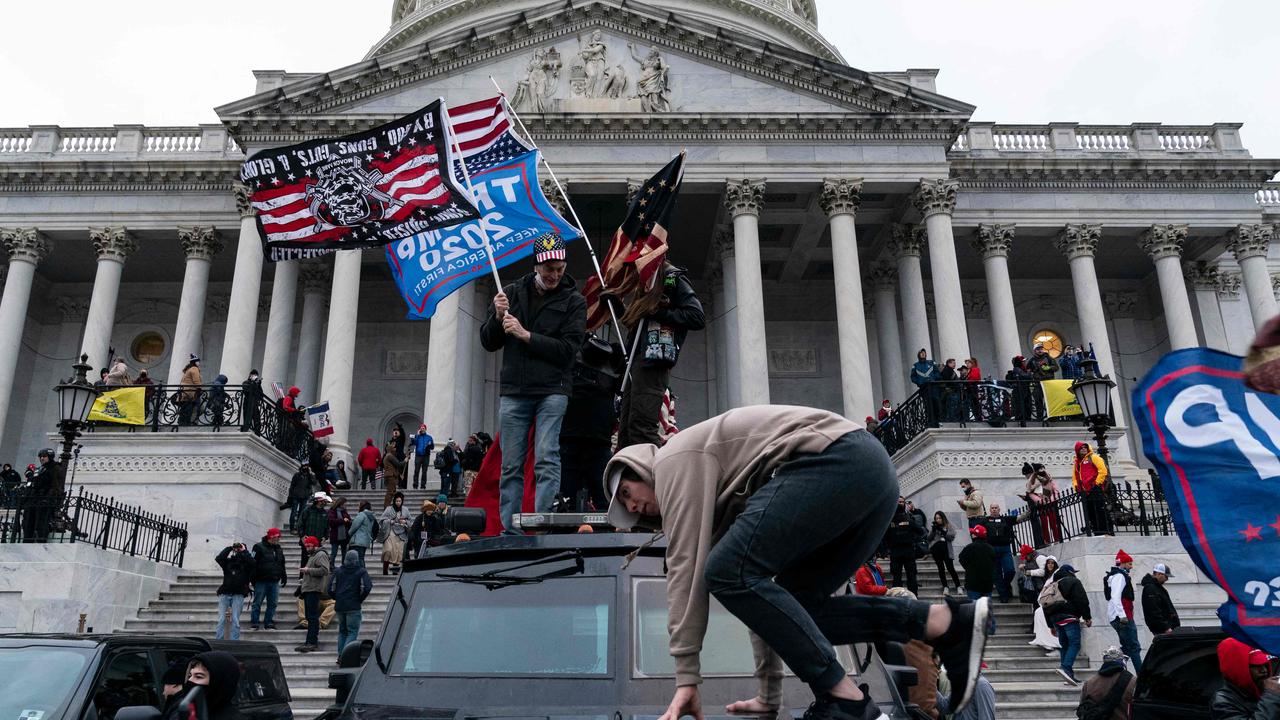
“Both sides will be watching vote casting and tabulations and filing legal claims based on their observations … It will be easy for either side to promote false narratives if the ballots take several days to process.”
Such narratives have already been appearing for several months.
“These people are trying to get [illegals] to vote,” Trump said during the September presidential debate, an accusation levelled at Democrat hopeful Kamala Harris.
“And that’s why they’re allowing them to come into our country.”
Recent polls show some 88 per cent of Republican voters are concerned mass illegal voting will apply to the upcoming election. That’s despite recent law changes and multiple state and federal investigations.
So much so that one in five agreed to a survey question asking if Trump should “declare the results invalid and do whatever it takes to assume office” should he lose.
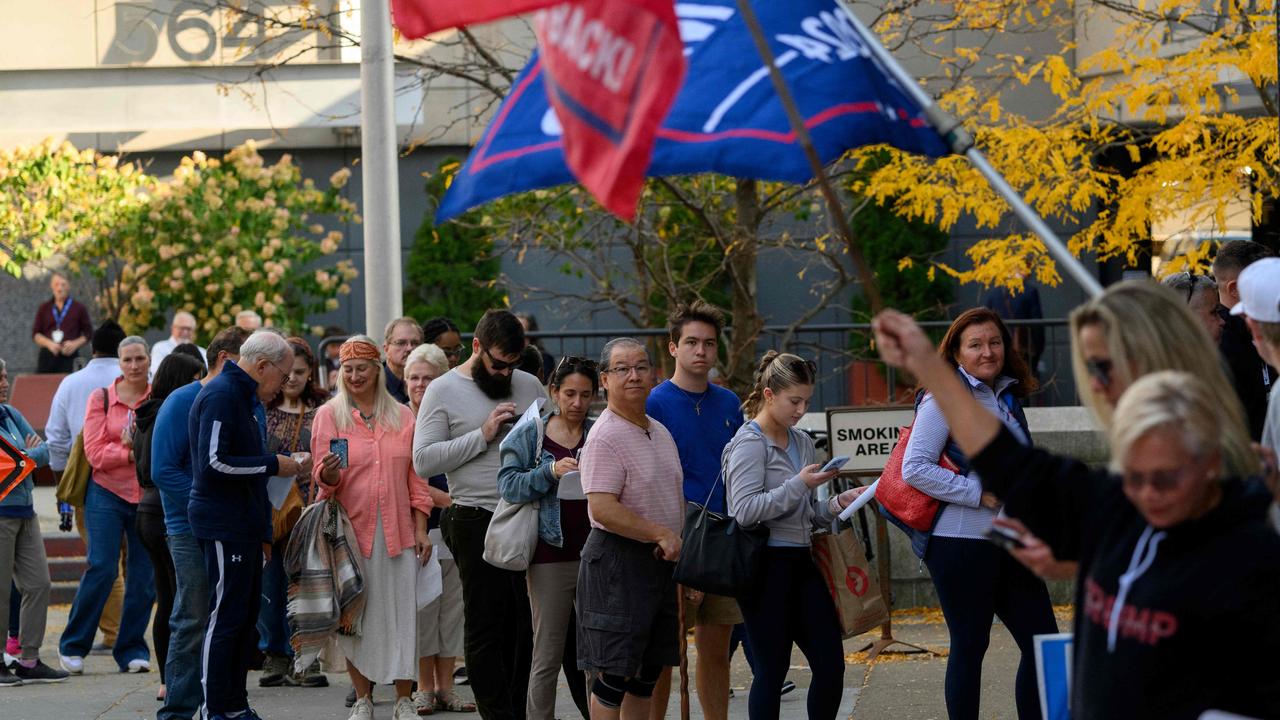
‘I want to believe’
AI-generated “bot” content has been tracked spreading in reach and number across X in particular for several years, added University of Sydney communications expert Dr Timothy Koskie.
And it is targeting willing ears.
“Research has indicated that many people will knowingly spread misinformation if it aligns with their views or paints them in a particular light,” he said.
“While claims of ‘fake news’ might raise images of deeply invested conspiracy theorists, its spread and reception is often down to simple inattention or its presence on a preferred source.”
And those who indulge in disinformation are being rewarded. Changes early in October to X payment policies mean the number of views of individual posts – not just exposure to display adverts – will earn users payment. Controversial election posts are both topical and being boosted by X’s algorithms.
“Many social media sites allow users to make money from their posts or to share sponsored content,” the BBC report reads.

“But they often have rules which allow them to demonetise or suspend profiles that post misinformation. X does not have guidelines on misinformation in the same way.”
And the Wall Street Journal analysis of X’s social media content-boosting algorithms shows it has been primed to reward such content.
“Less than a third of unique posts seen by the Journal’s accounts were political in nature. But X’s algorithm re-upped political posts so often that they accounted for about half of the total posts,” the report stated.
“The majority of the political posts X served the bots were from conservative figures and pro-Trump accounts.”
X has yet to respond to either the BBC or Journal reports.
The US Office of the Director of National Intelligence (ONI) has reported that foreign powers do not appear to be attacking the integrity of US voting systems, as they had in previous years.
Instead, the focus of propagandists and hackers backed by hostile nations – including China, Iran and North Korea – was to “undermine trust in the integrity of the election and election processes, as well as to further exacerbate divisions among Americans”.
The July report specifically pointed the finger at Russia as the “predominant threat to US elections”. But it had been “working to better hide its hand” than it had in the 2016 campaign.
Jamie Seidel is a freelance writer | @JamieSeidel
Originally published as ‘Violent chaos’: Fears grow for US election as disinformation spreads online





